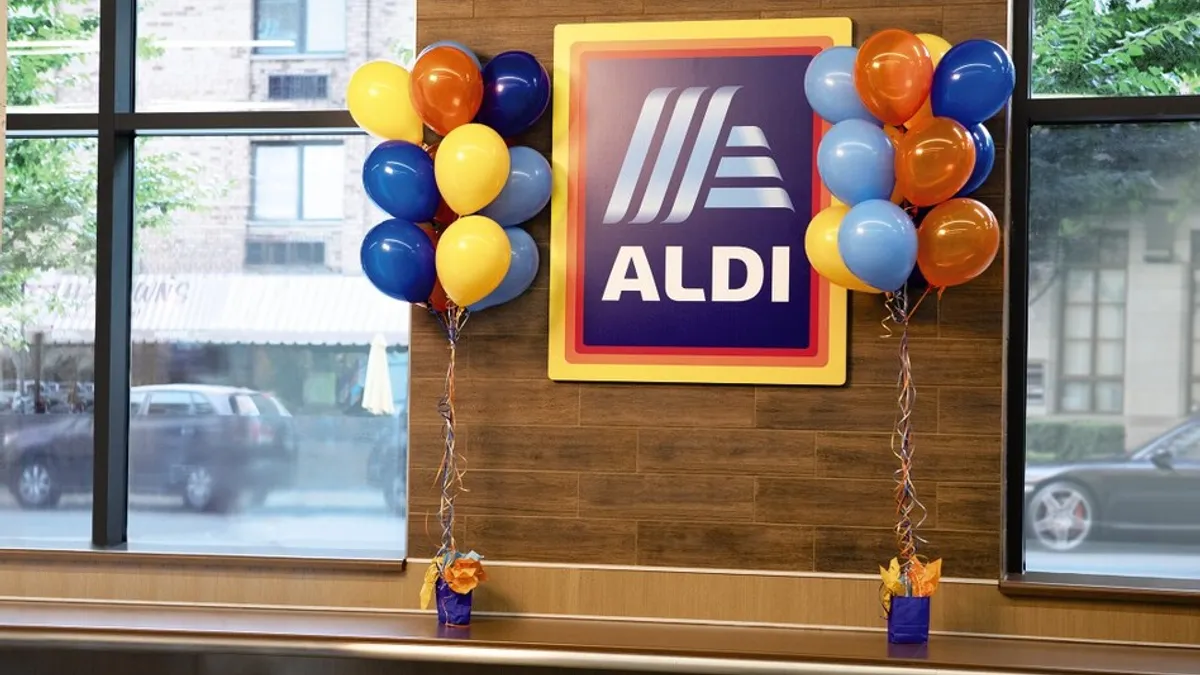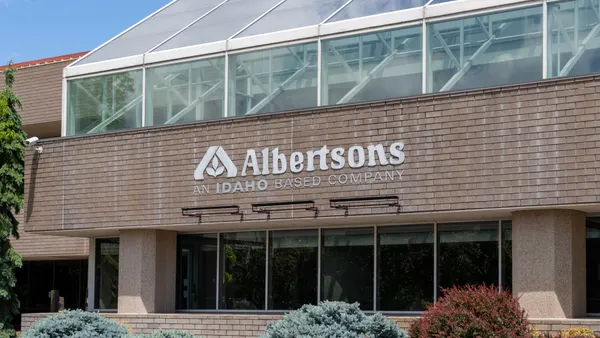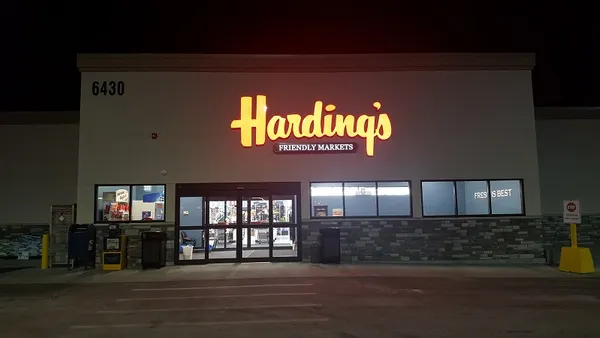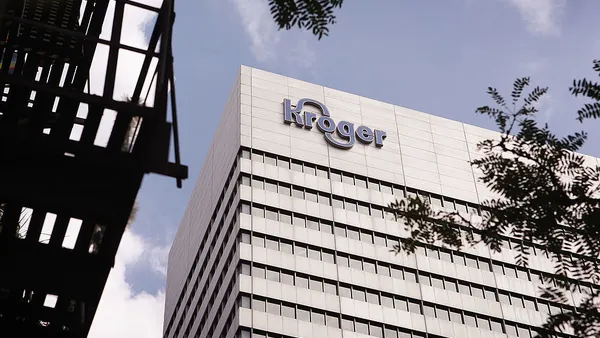Dive Brief:
- Aldi announced Wednesday that it has agreed to acquire Winn-Dixie and Harveys Supermarket from Southeastern Grocers for an undisclosed all-cash amount as that company continues to divest its various grocery assets.
- The deal includes approximately 400 Winn-Dixie and Harveys locations in Alabama, Florida, Georgia, Louisiana and Mississippi, encompassing 75% of the chains’ grocery locations. The transaction, under which Aldi will acquire all of Southeastern Grocers' capital stock, is expected to close in the first half of 2024, subject to regulatory approval and other closing conditions.
- The deal continues Aldi’s aggressive growth trajectory over the past several years and marks its largest acquisition so far in the U.S. The discount grocer plans to evaluate whether or not to rebrand locations to the Aldi name. “For those stores we do not convert, our intention is that these continue to operate as Winn-Dixie and Harveys Supermarket stores,” Aldi CEO Jason Hart said in a statement.
Dive Insight:
Aldi’s planned acquisition of Winn-Dixie and Harveys Supermarket marks a notable turn into traditional supermarkets for the discount grocer after several decades spent opening small stores across the U.S. Operating these stores would represent a departure from Aldi’s time-tested model, and its decision to enter that segment of the industry suggests it plans to leverage multiple store formats to help fuel its growth.
Southeastern Grocers has remodeled numerous Winn-Dixie locations in recent years, so Aldi is getting a vibrant fleet of stores that are primed to compete in the region’s grocery market, where Publix holds a commanding position.
A top challenge for Aldi will be facing down Publix, which has managed to marginalize Winn-Dixie and Harveys over the years. A big question is how Aldi might update the chains it is acquiring to make them more powerful competitors.
Aldi noted that the stores it is acquiring from Southeastern Grocers augment its existing plans to open 120 new locations in the U.S. in 2023. The fast-growing company expects to have a fleet of 2,400 stores by the end of the year.
Aldi already has strong brand awareness in the Southeast, having invested $2.5 billion in the region since the mid-1990s, according to the company’s release. Early this year, the retailer opened a distribution center and regional headquarters in Loxley, Alabama, that it said was intended to support up to 100 stores.
The acquisition is also the latest in what’s becoming a very active space for supermarket acquisitions. Kroger’s proposed acquisition of Albertsons promises to reshape the grocery landscape in the U.S., and the proposed divestiture of potentially hundreds of stores by those companies could further shuffle the industry’s power dynamics.
With its Winn-Dixie and Harveys acquisition now in play, Aldi should be considered a potential acquirer for some of the stores Kroger and Albertsons might unload to win regulatory approval for their controversial plan to combine.
Southeastern Grocers’ move to sell the Winn-Dixie and Harveys chains to Aldi is part of a broader plan by the company to exit the supermarket business through what it described as a “comprehensive strategic divestiture” of its operations.
The company announced Wednesday that it also intends to sell its Hispanic-focused Fresco y Más banner in a separate transaction also set to close during the first half of next year. The buyer, Fresco Retail Group, plans to continue operating the Florida-based chain, which includes 28 stores and four pharmacies, “as they are presently,” Southeastern Grocers said, without elaborating.
“Our successful transformational journey has created a unique opportunity with leading partners who share our vision and common commitments to creating value for their customers. We believe these next steps will fuel a phenomenal experience for our customers, new opportunities for our associates and increased value for our shareholders,” Southeastern Grocers President and CEO Anthony Hucker said in a Wednesday statement.
The transactions Southeastern Grocers announced Wednesday follow other deals it has struck to sell off stores. The company sold 62 stores, including 46 that sported its now-defunct Bi-Lo banner and 16 Harveys Supermarket locations, to Food Lion in June 2020. Months later, Southeastern Grocers sold 23 more Bi-Lo stores to two other buyers.
Southeastern Grocers has had a bumpy ride during the past several years. In November 2021, the company canceled plans to go public it had announced earlier that year, without providing a reason for the decision. That reversal came after the retailer’s emergence from Chapter 11 bankruptcy protection in 2018.















